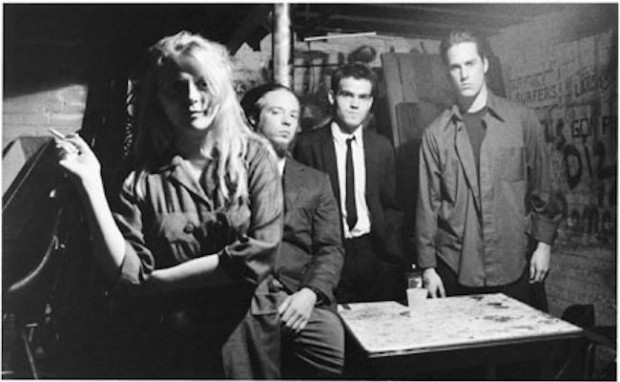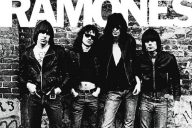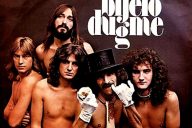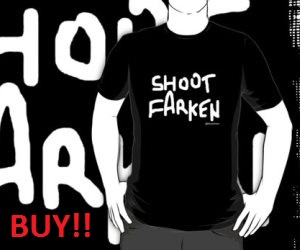Like most menial jobs, routine was part of the package.
At 7pm, our little crew would pull up to the first office block, unload the van, and take what we needed to get the job done: mops, buckets, vacuum cleaner, sprays, rags, garbage bags, feather duster.
By 8pm we had to be finished with the first block – carpets vacuumed, bins emptied, phones spayed and wiped, toilets cleaned – and we had to be ready to do it all again in the second block. And then another office building.
By about 11pm we wanted to be in the first factory. Cleaning the factories was not that much harder than doing the offices, other than that the toilets were often dingier and dirtier. The factories had pictures of naked women too, which was not a bad thing for a 17-year-old boy, as I was at the time.
At about 2am we would start on the massive canteen – maybe the size of two basketball courts – and the change rooms. It was usually at this point that we’d stop for a coffee to keep us going until we finished at 4am or 5am, depending on whether we had to buff floors that night or not.
On a table in the canteen was a refreshment station for all the workers, complete with a big ice cream tub of instant coffee, the type you can buy in bulk at Officeworks, super fine – as in powdery, not as in good tasting. We’d stop, sit down in the empty canteen and have our coffee before trying to drag our tired bones through the night, hoping we’d get out before sunrise.
The worst was when we were still there when the factory morning shift came in at 6am. That’s when we knew that we’d really been beaten that night.
The long night ended with the drive home. My stepfather driving, me up front in the passenger seat, hoping we’d survive as he fought against micro-sleep at 100km/h, madly cranking the window down to stave off sleep with a blast of freeway air.
He’d urge me to talk to him to keep him awake, but I was too knackered to think of anything and had little to say anyway. What could I possibly have to say at 4.30am after nine hours of scrubbing, sweeping, mopping, wiping? That one of the factory workers had managed to again shit next to the toilet instead of into it?
(Years after I had stopped working with him, he did actually fall asleep at the wheel and crash the van. Thankfully, he wasn’t badly hurt. And yes, people did somehow manage to shit on the toilet seat, not into the bowl.)
All throughout the night, I listened to music on my Walkman; either the radio or tapes. It’s what kept me going; what kept me sane; what let me dream of some other life.
On high rotation at the time: Rollins Band, Sonic Youth and a band from Ann Arbor, Michigan called the Laughing Hyenas.
In 1989, the Laughing Hyenas released their first LP, called You Can’t Pray A Lie. It was a brutal and violent sounding record full of pain and hurt. Its roots lay in the post-punk blues of the Birthday Party, as well as that most obvious source of inspiration for Detroit/Ann Arbor bands, The Stooges.
The band featured vocalist John Brannon, who was in one of the greatest US hardcore bands, Negative Approach. Brannon howls and growls like a wounded beast cornered. In Negative Approach it was flat-out and righteous teenage fury, but he added a darker timbre to his primal scream therapy with the Laughing Hyenas.
Brannon was accompanied by guitarist Larissa Strickland. There’s something of the Robert Johnson about her story.
She was the singer in a band called L-Seven (not L7). When that band ended, she started living with Brannon, who was also at musical loose ends after the break-up of Negative Approach. The two decided to form a band. But who would play guitar? Strickland put herself to the task and within a year or so was playing a searing, feedback-drenched, bluesy scowl for the Hyenas. Like Johnson, it was as if she had sold her soul to the devil in exchange for being able to play like a damaged angel.
Strickland was playing lead guitar in the late 80s and early 90s when there still weren’t that many women doing that. She never seemed to get bracketed in with any of the Riot Grrrl/female empowerment stuff that was going on at the time, probably because, as a band, the Laughing Hyenas weren’t about the gender, or otherwise, politics of rock.
The Laughing Hyenas were also known to be a ‘troubled’ band when it came to drug use, particularly heroin. Sadly, Strickland died in 2006 of a prescription drug overdose, 10 years after the Laughing Hyenas had broken up.
I bought You Can’t Pray A Lie when it came out in 1989 on the recommendation of one of the guys at Melbourne’s Au Go Go Records, which has since closed but was a bit of an institution in its day, and is still my favourite ever record shop.
Record shop guys like the ones at Au Go Go were what kids today might refer to as an algorithm. Based on a purchase or two and a brief conversation, these gatekeepers of vinyl lore could unlock all manner of aural worlds and delights for the keen, attentive shopper. You like Guns n’ Roses? Here, try some Dead Boys. You liked that Dead Boys record? Have a listen to some Pere Ubu. Dig that? Then you’ve really got to hear Rocket from the Tombs.
Along with reading fanzines and listening to your favourite public/community radio shows, it was the best way of finding out about new and old bands. I’d go to the city once a week or so and buy a couple of records at Au Go Go with the pocket money I was getting for working in the family business.
I had dropped out of high school – Year 11 at a Catholic college – and started working in the family cleaning business. I wasn’t bad academically, but I had become socially withdrawn and was truant for most of the year.
I just didn’t like going to school and dealing with the other kids or the teachers. I wasn’t bullied or anything like that: I just couldn’t be around people. I felt self-conscious and the only way I knew how to deal with that was by turning away and within – pretty typical behaviour for a lot of kids attracted to punk rock.
Bands like the Laughing Hyenas made total sense to a teenager like me.
Recently, I watched a short documentary about John Brannon. It was one of those things you come across amidst a trail of YouTube searches and it was looking at Brannon from the time he was in Negative Approach to his current day band, Easy Action. Of course it touched upon the 10 or so years he was in Laughing Hyenas too.
Brannon’s been in these great bands, but he still has to work what looks like a shitty, minimum wage job making salads in a diner. That’s pretty punk rock.
The doco inspired me to dust off my old copy of You Can’t Pray A Lie – the one I bought at Au Go Go with my cleaning money – as well as listen to a few other Hyenas records.
Dropping the needle on that very same record that I played to death as an insecure, slightly lost 17-year-old brought back all sorts of weird memories.
Night after night, doing the same stuff over and over again: methodically vacuuming the same patch of carpet, those hallways and offices occupied by normal office people during the day. Emptying their bins and ashtrays. That ashtray smell on my hands. Pushing the bin trolley and knowing where every bin was in the office; getting annoyed if someone had moved their bin. Checking to make sure the toilets were stocked with enough toilet rolls.
That was 25 years ago. The Laughing Hyenas blasting away on a TDK tape in my Walkman. Going from one building to the next. Long nights spent alone with my thoughts and John Brannon’s crazy voice growling away in my head. Sweeping up that massive canteen; putting the chairs on the tables; then mopping the floor.
The record still sounds great: a squalling roar of emotional derangement with that big, grunge sound Butch Vig, who produced the record, was becoming known for creating and would go on to perfect in a commercial sense with Nirvana’s Nevermind.
The rhythm section swings in an almost jazzy way at times, Jim Kimball’s drumming standing out for me now more than it probably did back then. But John Brannon and Larissa Strickland are still the stars of the show. The record still has the emotional weight and force to fill a room the size of a massive, motherfucking canteen that you think you’re never going to finish mopping.
When the night had come to an end and our labours had been exhausted, we’d collapse into the van, making sure all the equipment was packed away, and head home. My stepfather would put the easy listening station on. I hated it. I just wanted to listen to the Laughing Hyenas, not fucking Frank Sinatra.
A quarter century later and I like easy listening music. I think Frank Sinatra is a genius.
But I can still listen to the Laughing Hyenas and there’s a special little part of me, buried deep down in my 17-year-old soul, that’s still touched by their psychodrama punk blues.
















